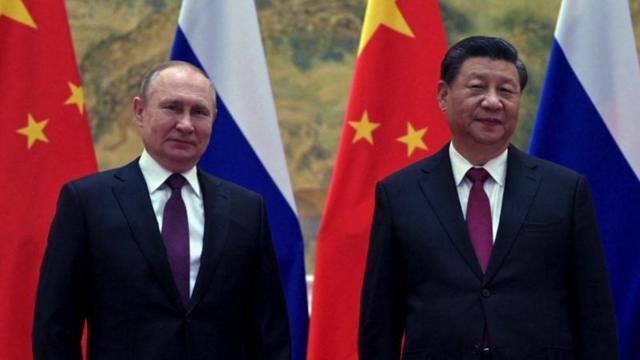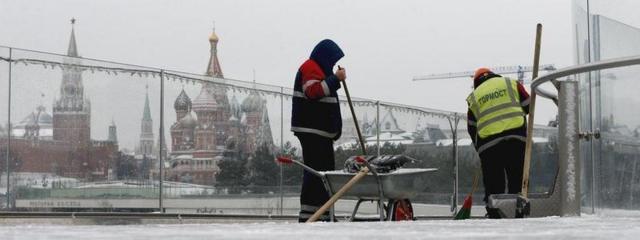The full-scale Russian war against Ukraine is about to enter the third calendar year. The Kremlin was clearly clear that the sole purpose of negotiations he agrees is the surrender of Ukraine. The Ukrainians were also clearly clear that they would continue to resist.
When and what will this war end?
The American magazine Foreign Policy asked for prominent thinkers to share their forecasts.
The end is not yet visible
Angela Stent, author of the book "The World of Putin. Russia and its leader through the eyes of the event".
The war in Ukraine has been going on for the third year, and the exit from the current situation is not visible.
Both countries need to mobilize more troops. But Ukraine, whose population is several times less than in Russia, will be harder to do it.
However, war is not only a living power, but also a weapon. And here both opponents have problems. Russia purchases drones from Iran, and artillery shells and rockets in North Korea.
Ukraine depends on the supply of weapons and financial support from Europe and the US.
Recent approval by the European Union of financial assistance of $ 54 billion will allow the Ukrainian state to continue functioning, and NATO European members will provide additional weapons.
But the main donor of Ukraine leave the United States. And if the Congress does not approve of assistance to Ukraine of $ 60 billion, and the US government does not accelerate the supply of modern weapons, then the prospects of Kiev in 2024 will be much more gloomy.
There is little chance of talks in 2024, and none of the parties can win a decisive victory.
The Kremlin was clear that he was not interested in negotiations that would not lead to the surrender of Ukraine, including the irreversible loss of four territories illegally annexed by Russia in 2022.
But no Ukrainian leader will agree to such conditions.
Putin also awaits the results of this year's elections in the US and hopes that the next US president will refuse to support Ukraine.
In such a scenario, Ukraine's ability to survive as an independent, sovereign state will be in question, with all the safety consequences for Europe and abroad.
The forecast of the possible end of the war, including the Korean model, which means a truce, refusal of a peace treaty and Western security for Ukraine, also provides that Russia will accept independent Ukraine.
But while in power, Vladimir Putin or his successor, which will share his views, is unlikely to happen.
The second Cold War
Joe Inge Beckevold, Senior Researcher on China at the Norwegian Institute of Defense Research
When the Russian troops crossed the border of Ukraine in February 2022, it became clear that it would accelerate the geopolitical split between the United States and their allies, on the one hand, and the Chinese-Russian axis, on the other.
In 2024, we approached the global split, reminiscent of the Cold War.
First, the war increased the influence of Beijing on Moscow. Once in isolation from the West, Moscow is increasingly dependent on China as a market for oil and gas exports as a supplier of many goods and as a partner in the development of new technologies.

Photo author, Getty Images
The support of Beijing Moscow has increased the differences between China and Europe, which abandoned China's peaceful plan for Ukraine. And Beijing, in turn, lost its influence in Central and Eastern Europe.
The pre -war dependence of Europe on Russian energy was the vulnerable point that the West now wants to avoid with China. Washington and Brussels reduce the risk of their close economic ties with the Celestial. And Beijing, for its part, increases its own self -sufficiency.
In addition, Russian aggression strengthened transatlantic unity, prompted NATO European members to increase its defense budgets, pushed Finland and Sweden to the Alliance, forcing the United States to increase its military presence in Europe again.
With all that the current situation is different from the First Cold War. Today, the Chinese-Russian partnership relies on a stronger geopolitical basis than Chinese-Soviet. But transatlantic unity is fragile. Some European states delay the costs of defense, NATO Sweden, advocate autonomy from the United States, and do not agree with the efforts to reduce risks from China.
Each case perhaps does not threaten the unity of the event, but if viewed together, they have an impact.
However, the most noticeable and important sign of the split of the West is that former US President Donald Trump has questioned NATO 5 article 5 during his presidential campaign, which states that armed aggression against one country is considered to be armed aggression against all NATO countries and the rest of the countries are obliged.
Thus, Russia's attack on Ukraine exposed the weakness of the Western Bloc. Europe still suffers from its dreams and mistakes that arose after the Cold War. And many European politicians do not seem to look at the realities of war in the face, regardless of whether it is a Russian invasion or a new Cold War.
During the Soviet-American Cold War, Washington was able to take advantage of the differences between Beijing and Moscow, whereas Beijing and Moscow today-in a stronger position and can shake the Western Bloc.
Sanctions do not work quickly
Agatha Demar, a Follower of Foreign Policy and Senior Geo -Economy Research Fellow at the European Council on International Relations
What did we understand in two years of Western financial and economic sanctions against Russia?
There are three main points.
First, Moscow wins the information war against sanctions, because the world prevails that they are ineffective.
However, the question is: if the sanctions are really in vain, why does the Kremlin so stubbornly discredit them?
The world media is also mostly written about how Russia is overlooking sanctions.
Smuggling, of course, exists, but reality is more complicated than in bright headlines. Russian import of first -class technologies has fallen by about 40% compared to the pre -war level - at a time when Russia's needs for high technology are probably high.
This is not enough to stop Moscow's military car, and it is necessary to do more to strengthen export control. But a 40 percent decline remains significant, although not voiced, the success of sanctions.

Photo author, Getty Images Signature to Photo, Russia's economy has not fallen under pressure from sanctions
Secondly, the impact of sanctions on Russian business is becoming more noticeable, especially in sectors deprived of Western equipment and know-how, such as the aerospace industry and energy.
In January, the Siberian Airlines had to suspend the operation of its Airbus aircraft and reduce the staff due to the lack of details for aircraft engines.
That same month, Lukoil, a large Russian oil refinery, was forced to stop the establishment of cracking after the breakdown of the Western production compressor.
In 2024, there are probably more such stories that illustrate that sanctions are a marathon, not a sprint. Their aggregate action will be high and show that, despite the grand statements about unlimited Chinese-Russian friendship, Chinese equipment cannot fully meet Russia's needs for high technology. At least not at this stage.
Third, the use of financial assistance could facilitate the financial assistance situation for the restoration of Ukraine frozen in the West of Russian assets. This will remain a hot topic in discussions of like-minded allies.
On the one hand, the US and Britain push the West countries to confiscate Russia's foreign exchange assets and transfer them to Ukraine. Their moral argument: the aggressor has to pay.
On the other hand, several countries in the European Union, including Belgium, France and Germany, oppose it, claiming that it will undermine confidence in Western financial infrastructure and currencies.
The European Central Bank (and more interesting, the International Monetary Fund) has joined this careful camp. Since most of the immovable assets of Russia are in Belgium, without EU involvement, this issue will not be resolved.
So, apparently, there is no political decision on this yet.


